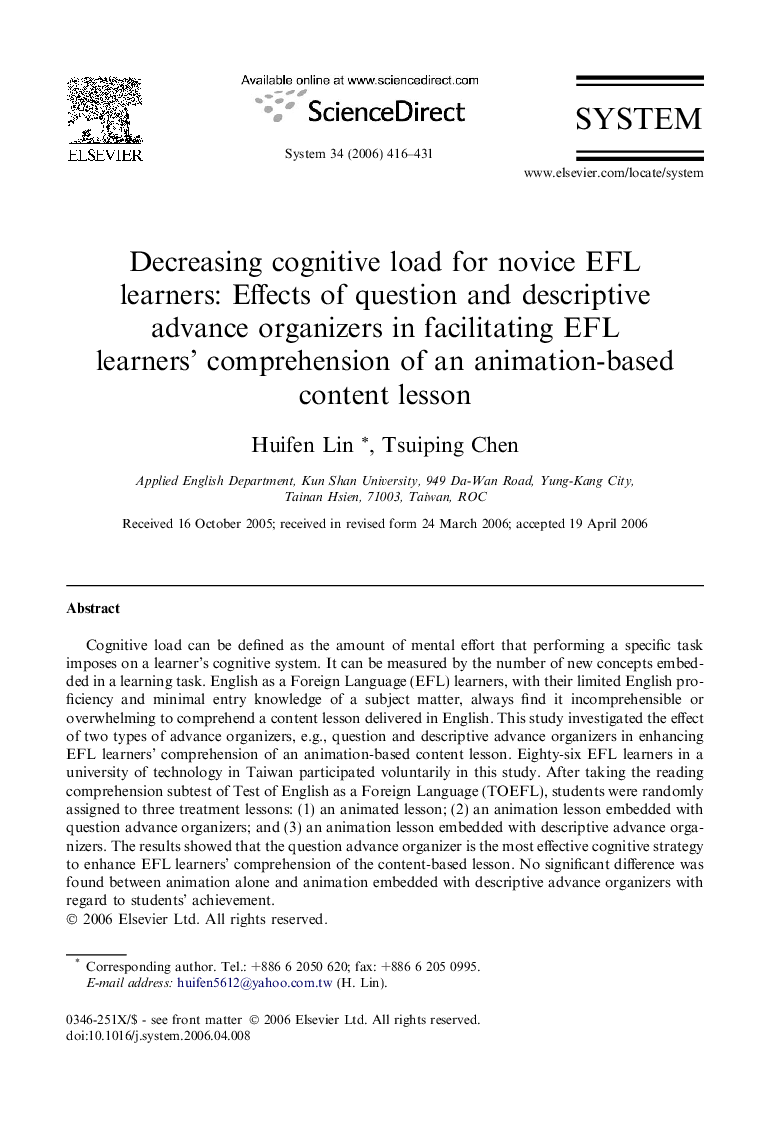| Article ID | Journal | Published Year | Pages | File Type |
|---|---|---|---|---|
| 373708 | System | 2006 | 16 Pages |
Cognitive load can be defined as the amount of mental effort that performing a specific task imposes on a learner’s cognitive system. It can be measured by the number of new concepts embedded in a learning task. English as a Foreign Language (EFL) learners, with their limited English proficiency and minimal entry knowledge of a subject matter, always find it incomprehensible or overwhelming to comprehend a content lesson delivered in English. This study investigated the effect of two types of advance organizers, e.g., question and descriptive advance organizers in enhancing EFL learners’ comprehension of an animation-based content lesson. Eighty-six EFL learners in a university of technology in Taiwan participated voluntarily in this study. After taking the reading comprehension subtest of Test of English as a Foreign Language (TOEFL), students were randomly assigned to three treatment lessons: (1) an animated lesson; (2) an animation lesson embedded with question advance organizers; and (3) an animation lesson embedded with descriptive advance organizers. The results showed that the question advance organizer is the most effective cognitive strategy to enhance EFL learners’ comprehension of the content-based lesson. No significant difference was found between animation alone and animation embedded with descriptive advance organizers with regard to students’ achievement.
